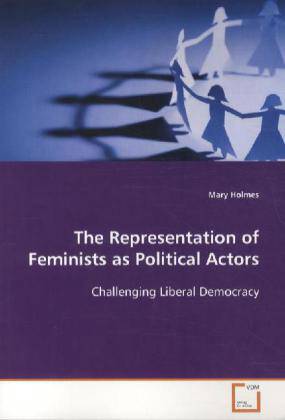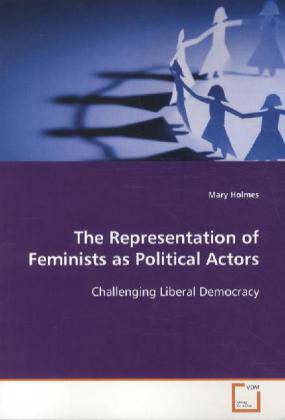
Je cadeautjes zeker op tijd in huis hebben voor de feestdagen? Kom langs in onze winkels en vind het perfecte geschenk!
- Afhalen na 1 uur in een winkel met voorraad
- Gratis thuislevering in België vanaf € 30
- Ruim aanbod met 7 miljoen producten
Je cadeautjes zeker op tijd in huis hebben voor de feestdagen? Kom langs in onze winkels en vind het perfecte geschenk!
- Afhalen na 1 uur in een winkel met voorraad
- Gratis thuislevering in België vanaf € 30
- Ruim aanbod met 7 miljoen producten
Zoeken
The Representation of Feminists as Political Actors
Challenging Liberal Democracy
Mary Holmes
Paperback | Engels
€ 99,95
+ 199 punten
Omschrijving
There has been renewed interest in the history of second wave feminism, as it is forty years since the political upheavals of 1968 which prompted this new movement for women's liberation. A key feature of that move-ment was its challenge to liberal democracy, tackling not just political issues but the very nature of the political system itself. This work takes the feminist movement in Aotearoa/New Zealand to be broadly representative of that challenge, with due attention to cultural particularities. Feminist writings, designed to bring new converts and to communicate the aims and views of the movement were crucial in formulating the challenge. Yet these have been largely ignored. By analyzing writings New Zealand feminists produced between 1970 (when the movement took off in New Zealand) and 1984 unique insight into second wave feminist movement can be gained. The challenges feminists made to liberal democratic forms impacted on how they represented themselves as political actors. By examining these impacts we can move away from tales of fragmentation ruining early unity towards a new story about a diverse and vibrant movement which has changed how politics is seen and done.
Specificaties
Betrokkenen
- Auteur(s):
- Uitgeverij:
Inhoud
- Aantal bladzijden:
- 176
- Taal:
- Engels
Eigenschappen
- Productcode (EAN):
- 9783639110845
- Verschijningsdatum:
- 9/12/2008
- Uitvoering:
- Paperback
- Formaat:
- Trade paperback (VS)
- Afmetingen:
- 152 mm x 229 mm
- Gewicht:
- 244 g

Alleen bij Standaard Boekhandel
+ 199 punten op je klantenkaart van Standaard Boekhandel
Beoordelingen
We publiceren alleen reviews die voldoen aan de voorwaarden voor reviews. Bekijk onze voorwaarden voor reviews.









